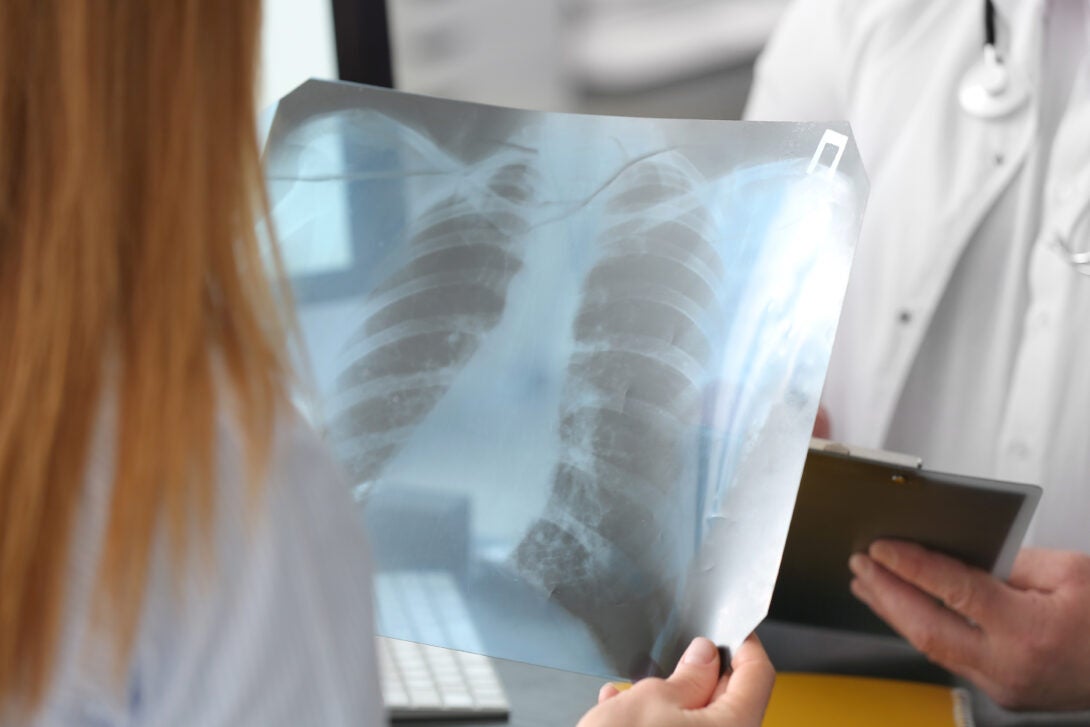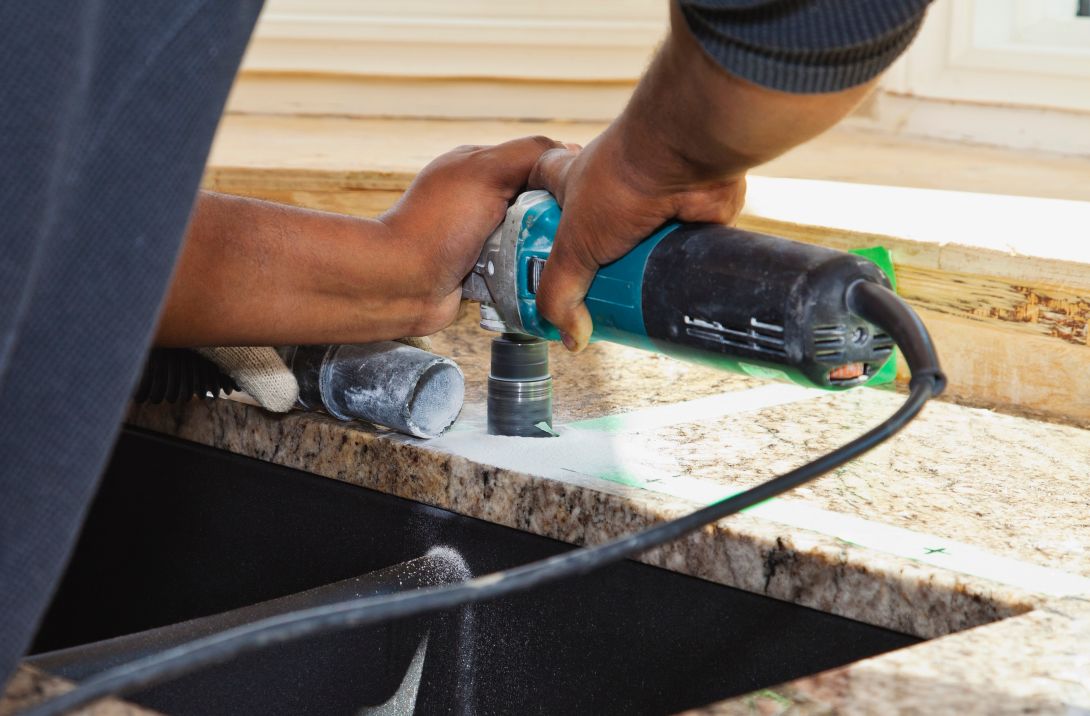Unsafe Levels of Silica Dust Exposure at Work
Attention Illinois Workers in Countertop Fabrication and Construction Industries:
Do you work or have you worked with quartz or engineered stone in fabricating countertops? The dust generated from cutting, grinding, sanding, drilling, and polishing can expose you to harmful silica dust. Silica is a mineral that, when inhaled, can lead to silicosis. Silicosis is a severe lung disease that scars lung tissue, making it harder to breathe and sometimes leading to life-threatening complications. It can take years before you experience symptoms of harmful silica dust exposure.
Schedule a FREE Medical Assessment Today!
Schedule A FREE Medical Assessment Today!

If you’re exposed to silica dust at work or have been in the past, get checked for FREE immediately! These complimentary evaluations include a physical exam, chest x-ray, and lung function tests to help detect silicosis early.
This issue is close to our hearts because it directly impacts Illinois workers. We want to ensure that Illinois workers know about the risks and have seen the Department of Labor news release about recent cases of silicosis in the Chicago area.
Our team is dedicated to protecting the health and safety of Illinois workers, as showcased in this recent opinion piece written by our faculty in the Chicago Tribune: Protecting Workers from Deadly Silica Dust. This article sheds light on the urgent need for stronger protections against silica dust and provides insights into the hazards facing countertop fabricators and similar professions.
Workers and Fabricators Can Take Action to Protect Against Silicosis

Organizing with your coworkers is a powerful way to make a difference if you’re concerned about silica exposure or other workplace safety issues. By coming together, you can push for more robust safety measures and the resources needed to protect everyone on the job.
Workers or employers concerned about silica dust exposure can also request assistance from the National Institute for Occupational Safety and Health (NIOSH). Through their Health Hazard Evaluation Program (HHE), NIOSH experts can assess workplace risks and recommend controls—all at no cost! This service can be a valuable resource for ensuring that your work environment meets safety standards and protects your health. Learn more about the HHE Program and how to apply here.
California has become a leader in protecting workers from silicosis through emergency rule-making processes. Their approach shows how proactive measures can reduce health risks and prevent silicosis. Read more here.
You don’t have to do it alone—worker centers and organizations like the Illinois Council for Occupational Safety and Health (ILCOSH) are here to support you in advocating for safer, healthier working conditions. ILCOSH is a coalition of worker allies and advocates for safe and healthy workplaces. Visit the ILCOSH website.
Protecting Workers from Silica Hazards in the Workplace
Your Employer Has a Legal Obligation to Protect You!
The Occupational Safety and Health Administration (OSHA) has created standards to protect workers from silica exposure in countertop fabrication and similar jobs:
- Limit Dust Generation – Water sprays or mists should be used to reduce dust levels
- Provide Training – All workers should be informed of silica hazards and trained in protective measures
- Install Local Exhaust Ventilation – Systems to capture dust at the source are essential
- Provide Personal Protective Equipment (PPE) – Such as respirators, to keep workers safe
Read more about the OSHA standards, proper controls, and the health and safety effects of silica dust exposure here.
Campos and Gomez case
With dozens of countertop companies and vibrant home renovations going on, there are likely lots of affected workers in Illinois…The tragic case of Campos and Gómez is a call to action and, sadly, the continuation of a story seen across the globe. We must protect our precious, essential Illinois workforce.
| from their Chicago Tribune op-ed: What can Illinois do to better protect workers from silica dust?